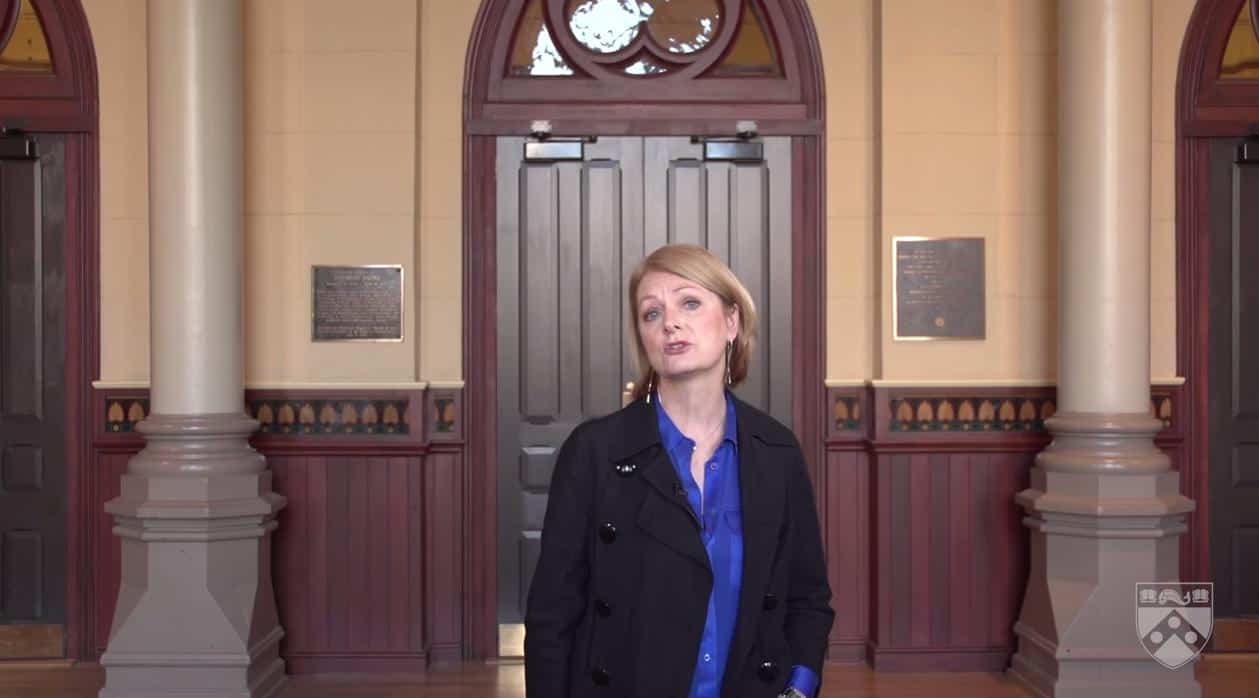Course Review: History of the Slave South by The University Of Pennsylvania
Patricia Ross talks about how History of the Slave South caused her to understand new insights that did not fit the simple good vs. bad preconceived notions.
Review by Patricia Ross. Took the course? Write your own review here. Read all reviews.
Arguably, one of the goals of education is to provide a learner with information that can inform the development of his or her perspective. At its worst, such a process can make a learner truculent, retrenching into safe and narrow ideas. But at its best, the process results in a sort of Gestalt switch, a rearrangement of the parts of a long-held picture of the world such that a much clearer, more sensible picture emerges. Stephanie McCurry’s History of the Slave South is education at its very best.
THE INSTRUCTOR
McCurry is currently the Christopher H. Browne Distinguished Professor of History in the Department of History at the University of Pennsylvania and specializes in the history of the American South and the Civil War era. Her background, experience and projects in these areas are numerous and I would encourage anyone interested in the course to check out more details which can be accessed at her professional website.
SLAVERY & THE AMERICAN SOUTH
History of the Slave South Promo
The course examines the American South from the early part of the 17th century, a time when slavery seems almost an accidental property of a society at the fringe of a much larger, well-established slave economy – through the Civil War where we find a southern economy entirely dependent upon slavery, an almost non-existent free labor force and a society hell-bent on becoming an independent country. The account McCurry provides of how the South gets from point A to point B is astounding. And yet there is never any question that there is evidence to back up every claim. This is history at its very best – an empirical science.
PURPOSE
In writing these reviews, authors are asked to talk about why they took the course. To be quite honest, I’ve been enrolled, formally, as a student for an embarrassing number of my 54 years on earth and was basically looking for my next fix. Thinking that informal learning may be easier to explain to friends and family going forward (as opposed to yet another degree), I just simply started surfing the web for something that caught my eye. Yes, I was interested in the topic (I can almost imagine that someone might not be), no, I wasn’t trying to solve any problem by taking the class nor did I have any goals in mind post completion.
But after the fact I can see that the knowledge gained from this course has innumerable direct implications for any number of problems and serves many goals — from gaining better understanding of the demands on democracy needed for economic flourishing to addressing issues of how to close educational achievement gaps.
BACKGROUND & RESULTS
Although I come to this course with years of experience in higher education – as a professor and researcher – aside from knowledge of the history of science, my background and skills in history (social, political, economic) is pathetically lacking. Although I’m sure that somewhere back in the dark ages I took a high-school class entitled American History, I came to this course with little more than the false belief that a uniform ideology concerning the inferiority of one race and shared by all white people living south of the Mason-Dixon line formed during the 17th and early 18th century and was, eventually, pitted against an ideology of equality held by all those living to the north of Pennsylvania’s southern border. A war ensued. I can only imagine if one is more enlightened than that, this course could be richer and even more meaningful. But wherever one is along the continuum of knowledge in this area, there is guaranteed to be something new to consider, something more to think about and something else that you will want to go off and explore on your own.
One of the more interesting perspectives that History of the Slave South provides, that ties in with McCurry’s specialization in the history of women and gender, is the more complete perspective of the role of women in the American South during this time. To avoid having to issue a spoiler alert at this point, I will mention only that they were not the non-participant by-standers that most history would suggest. And this is true of both black and white Southern women.
KEY TO SUCCESS
Being successful in this course depends, naturally, on one’s goals and definition of success. However, short of watching the lectures, answering weekly discussion questions and writing a few very short essays – the course requirements – I found that a willingness to explore more, read the supplemental readings, read the entire book from which the few assigned chapters were taken, etc. lead to a much richer experience. And, as with any learning experience, the course just really doesn’t work if you are not on top of the readings (which are really quite short and entirely accessible). It is difficult to estimate exactly how much time I put into the course (because of my rambling reading habit), however the lectures themselves are about one and a half hours per week and the required reading is perhaps another hour or two.
Patti is a partner in the firm of MacCallum Ross, Inc., providing research, evaluation and consulting services to nonprofits, foundations and higher education. She had a previous incarnation as an epistemologist and philosopher of science.
Class Central is looking for reviewers and regular contributors. If you’ve ever finished a MOOC and want to write a critique to help future students considering taking that course, we want to hear from you. Drop us a mail.






